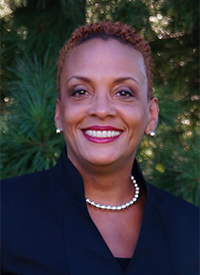By Pamela Ross
Vice President of Opportunity, Equity and Inclusion
 In recent months, many of our neighbors and community leaders have reached out to us asking how to be a partner in racial equity work, and we are grateful. The big question always seems to be, “what can I do?”
In recent months, many of our neighbors and community leaders have reached out to us asking how to be a partner in racial equity work, and we are grateful. The big question always seems to be, “what can I do?”
First, you must make this personal. This work is not nine-to-five. There are several books, articles, podcasts, documentaries, etc. that are great resources for this work. We have a list here that has guided us in our journey. Absorbing this information and becoming fully aware of the racial terror people of color have endured—and continue to endure every day—in this community and this nation is a necessary first step.
The bedrock of our nation is made up of systems designed to marginalize, stigmatize and blatantly mistreat people of color—specifically Black people. Our commitment to dismantle these historic systems of racism is a generational commitment. We also believe real change can begin today with full cooperation and strong community partners.
In 2018, Brian Payne, CICF president and CEO, created a new position on the executive team—vice president of opportunity, equity and inclusion—and I transitioned into that role. I am empowered to hold the organization accountable in its commitment to racial equity and identify opportunities to embed this commitment into every aspect of our work—including but not limited to hiring, vendor selection and grantmaking. Every day we are having hard conversations and re-examining how we support our community.
CICF does not pretend to have all the answers—nor do we claim to be pioneers in the space of racial equity. What we will claim is our responsibility to speak the truth.
Individuals and companies must get comfortable with being uncomfortable. For true transformation, we must be brave and open to territory that’s uncomfortable. A key to creating a safe space for these uncomfortable conversations is to clarify rules of engagement, limit expectations beyond truthful dialogue, and be aware of existing power dynamics within your institution. Be mindful that the space is not solely focused on educating White colleagues about racial injustices they’ve been spared from by their privilege and the emotions brought during this awakening to our reality. The space must also be safe for your Black colleagues and other people of color. Reliving personal experiences with racism is traumatic and exhausting. Do not expect your Black colleagues to share their trauma as merely a learning opportunity. If they do share, do not expect them to educate the entire company on how to be anti-racist. That is the responsibility of the individual and your organization’s leadership.
CICF does not pretend to have all the answers—nor do we claim to be pioneers in the space of racial equity. What we will claim is our responsibility to speak the truth. The truth is enough is enough. It is time for real change. No more complacency. No more silence.
There are concrete things that we can all do and commit to right now to become an anti-racist organization:
- If you believe in equity and inclusion but are an all-White institution—you need to change that.
- If you believe in equity and inclusion but have no leaders of color—you need to change that.
- If you are an institution that predominately serves people of color, but your staff and board do not represent the community you serve—you need to change that.
- If you are one of many institutions of power in this community that can make a real change for all but have no pathway to authentically listening to resident voices—you need to change that.
- If you are a hiring manager or in human resources and struggle to find diversity in your applicants and new hires—ask yourself ‘why’ and know you need to change that.
- If you are an institution that has not examined your policies and practices through the lens of access, inclusion and racial equity—you need to change that and institutionalize the work in perpetuity.
- If your organization has a diversity, equity and inclusion position, but their power is stifled when the work doesn’t feel good or “right”—you need to change that. Empower them to make REAL change in your work; otherwise, they are merely tokens.
- If you don’t believe Black and Brown people continue to be unfairly held back due to racist systems—you must get informed and recognize yourself as part of the problem.
- If you know racist systems exist and want to see equality for all—be an advocate. Use your POWER and VOICE to make a real change.
Overall, in this work—BE PRESENT AND AUTHENTIC. This opportunity for true change has come at the cost of many lives and anguish. We cannot afford to miss it. Be the change you wish to see—and start today.






Leave A Comment